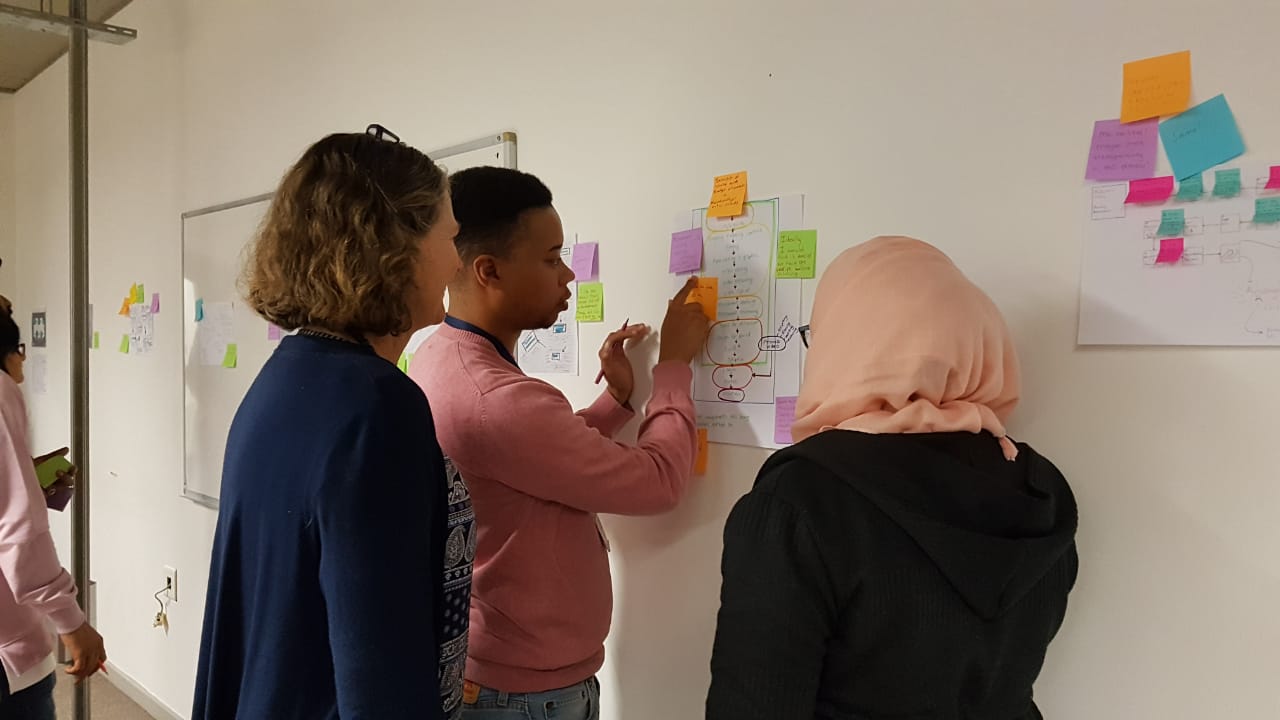Our Research
The Wolfson Institute of Population Health delivers internationally renowned research from six academic centres: Cancer Screening, Prevention & Early Diagnosis, Evaluation & Methods, Preventive Neurology, Primary Care, Psychiatry & Mental Health, and Public Health & Policy. We have more than 500 interdisciplinary staff including anthropologists, behavioural scientists, clinicians, epidemiologists, health economists, health services researchers, policy researchers, psychologists, public health professionals, sociologists, statisticians, and trial managers.
We have a long track record of worldwide research impact. For example, the widely used Tyrer-Cuzick calculator for breast cancer risk assessment and the widely disseminated HARK tool, used in primary care to identify women exposed to intimate partner violence, were both developed here.
Our research is supported by charity, industrial and government funding, and includes centres of excellence such as the NIHR Policy Research Unit in Dementia and Neurodegeneration. The Institute also plays a leading role in various national and international collaborations such as the NIHR School for Primary Care Research and the World Health Organization Collaborating Centre for Mental Health Service Development.
The Institute has established cross-cutting themes to facilitate collaborative work in key areas:
Digital and Health Data Science Theme
(Lead, Rohini Mathur and Deputy Lead, Petra Proitsi)  This theme delivers excellence in digital and health data science across WIPH, supporting collaboration, training, and networking opportunities for staff working across all aspects of health data science including epidemiology, statistics, multi-omics, artificial intelligence, and machine learning approaches. The theme supports educational initiatives such as the MSc Health Data in Practice, and shares excellence in research via the Population Health Data Seminar Series and the Electronic Health Records Research Group.
This theme delivers excellence in digital and health data science across WIPH, supporting collaboration, training, and networking opportunities for staff working across all aspects of health data science including epidemiology, statistics, multi-omics, artificial intelligence, and machine learning approaches. The theme supports educational initiatives such as the MSc Health Data in Practice, and shares excellence in research via the Population Health Data Seminar Series and the Electronic Health Records Research Group.
Applied Social Science in Health Theme
(Co-Leads, Deborah Swinglehurst and Georgia Black) 
This theme advances the Institute’s focus on pressing contemporary health challenges through interdisciplinary research. The Theme Leads organise a wide range of activities directed at integrating robust social science perspectives into research and education across the Institute. Through seminars, symposia, regular workshops, podcasts and educational activities we bring scholars together to invite social science thinking, theorising and dialogue and build an active community of academics who are critically engaged with health policy and practice.
Public Advisory Panel Theme
(Co-Leads, Megan Clinch and Alison Thomson)  The Public Advisory Panel (PAP) theme supports high quality Patient and Public Involvement and Engagement (PPIE) across all WIPH research and education activity. The theme also supports and sustains substantial local impact via a panel of local residents and professionals who provide input to our education and research activity, and also shape it, based on local knowledge and needs.
The Public Advisory Panel (PAP) theme supports high quality Patient and Public Involvement and Engagement (PPIE) across all WIPH research and education activity. The theme also supports and sustains substantial local impact via a panel of local residents and professionals who provide input to our education and research activity, and also shape it, based on local knowledge and needs.
We are working in partnership with the Centre for Public Engagement (CPE) and the QMUL Civic University Agreement. Recent research has generated substantial findings on the health and wellbeing of our local community, including the challenges they face and the kinds of solutions and actions they would like realised by work with QMUL.